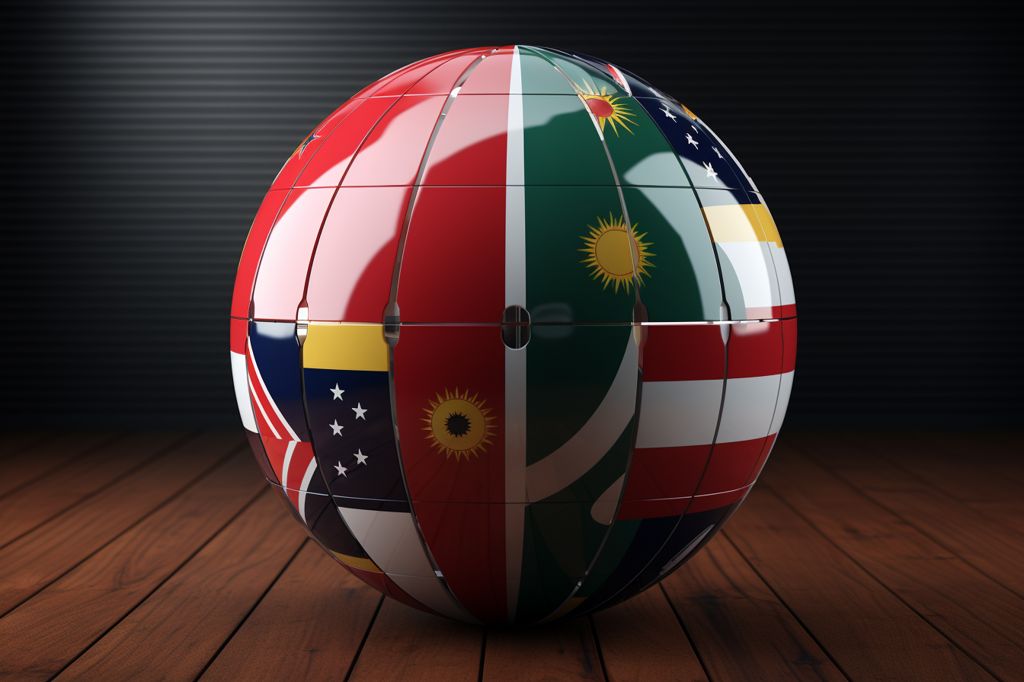Embracing Africa’s Engineering Potential
Deputy President Paul Mashatile took center stage as the keynote speaker at UNESCO’s 9th Africa Engineering Week and Africa Engineering Conference. The week-long event, coordinated by the Engineering Council of South Africa, seeks to promote engineering brilliance in the African region by gathering specialists and thought leaders. The conference’s theme, “Celebrating and Growing Engineering Excellence in the African Region,” mirrors the African Union’s Agenda 2063 and highlights a mutual dedication to sustainable development and technological innovation.
Africa, characterized by its massive land area and rich natural and mineral resources, is strategically significant and increasingly influential on the global stage. The continent boasts a young and dynamic population, with about 40% aged 15 years and younger, presenting immense potential. Bearing this in mind, the African Union Agenda 2063 aims to harness Africa’s potential through enhanced education and the implementation of science and technology in development.
Engineers have been the driving force behind societal progress, propelling technological advancements, infrastructure growth, and economic development. African engineers have made significant contributions to the continent’s legacy through remarkable achievements such as the Pyramids and the Great Mosque of Djenné. In the present day, they remain vital players in addressing urgent challenges across various sectors, including energy, water, transportation, and communications.
Infrastructure Development as a Catalyst for Growth
Over the past half-century, Sub-Saharan Africa has witnessed considerable infrastructure development, greatly impacting the economy and people’s quality of life. South Africa is among the top five countries on the African Infrastructure Development Index, joining Seychelles, Libya, Egypt, and Mauritius. Infrastructure development is crucial for expediting economic growth and reducing poverty throughout the region.
The conference investigates methods for incorporating economic activity across Africa, focusing on infrastructure investments as a solution to socio-economic issues such as access to water, food, and energy. Cutting-edge infrastructure enhances citizens’ quality of life and attracts foreign investment. By collaborating with organizations like the African Development Bank, the Development Bank of South Africa, and national governments, the continent can achieve growth through infrastructure transformation.
During the conference, attendees are encouraged to contemplate the role of engineers in advancing the African Union’s collective vision of economic integration and transformation. Discussions will cover topics such as expanding the rail network and infrastructure to enable product movement across the continent, and fostering partnerships between academia, industry, and governments to develop platforms for knowledge exchange and innovation.
Addressing Challenges and Promoting Collaboration
Despite progress, challenges persist. Engineering education in Africa is plagued by issues such as inadequate funding, limited resources, and a lack of diversity and inclusion, particularly with regard to the representation of women and marginalized groups. Tackling these challenges necessitates strategic interventions and investments in quality education, particularly in underprivileged areas. By empowering the next generation of engineers and cultivating environments that support innovation, Africa can unleash the potential of its talented youth and contribute to the continent’s development.
Collaboration and knowledge sharing are essential to achieving this goal. Strengthening partnerships between academia, industry, and governments can create platforms for engineers to exchange ideas and collaborate on innovative solutions. Events like the UNESCO Africa Engineering Week and Conference offer opportunities for networking, showcasing best practices, and discussing strategies to cultivate engineering excellence.
As Africa embraces the vision of a borderless continent under the African Continental Free Trade Agreement (AfCFTA), collaboration, standardization of customs procedures, and promotion of the free movement of people and capital become increasingly important. This cooperative spirit will inspire entrepreneurialism and foreign investment. By fostering a commitment to engineering excellence, Africa can lay the foundation for a future wherein engineering is central to the continent’s growth and prosperity.
In conclusion, the UNESCO 9th Africa Engineering Week and Africa Engineering Conference provide an opportunity for engineers, thought leaders, and experts to unite in celebrating their accomplishments, learning from each other, and charting a path towards a brighter future through engineering excellence in the African region. By working together and capitalizing on Africa’s unique potential, the continent can continue to progress and thrive in an ever-evolving world.








